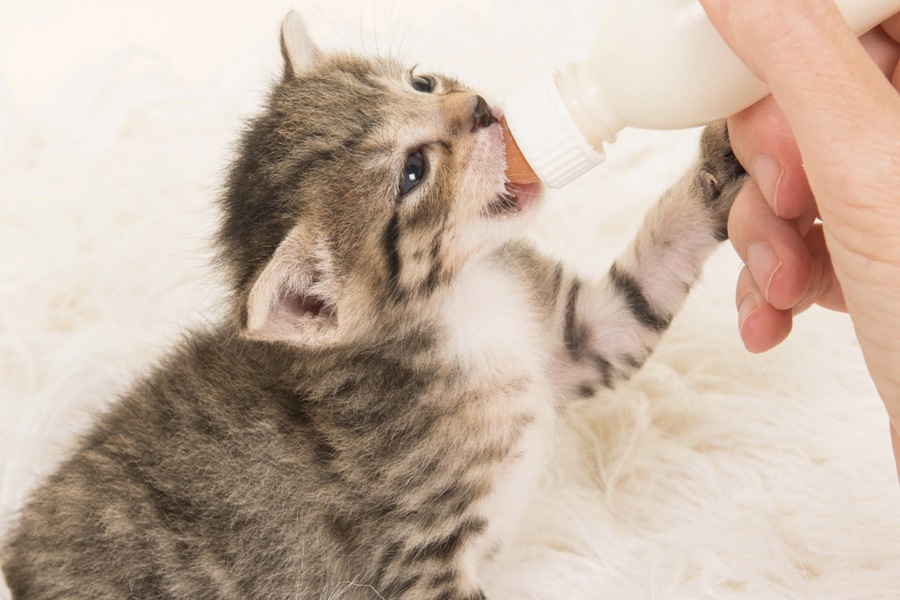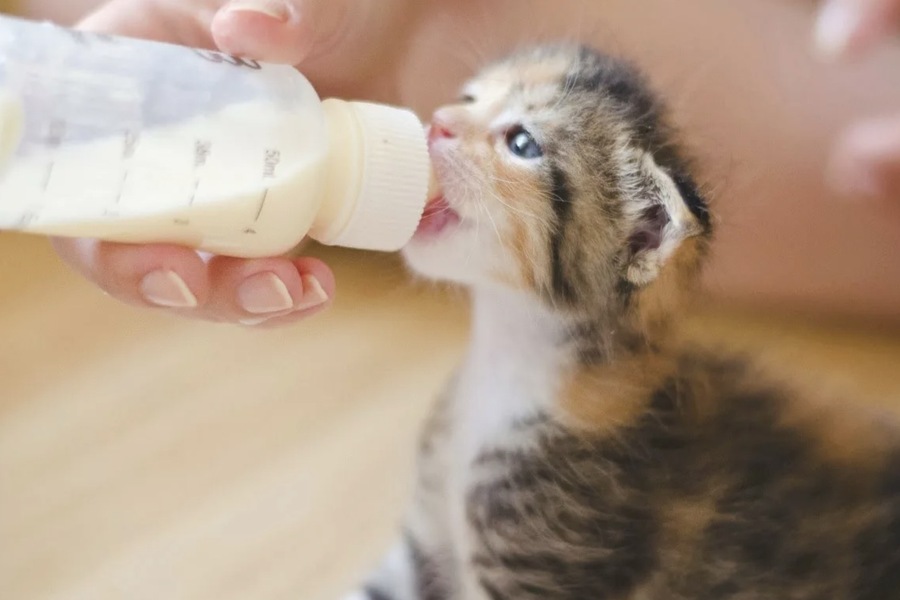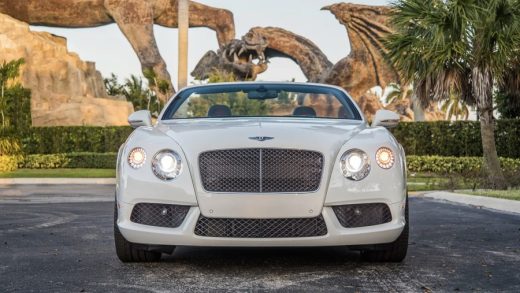Dubai’s hot and arid climate presents unique challenges for the care and well-being of pets, particularly for young and vulnerable animals such as kittens. Dehydration is a significant concern for kittens in this environment, as their small bodies are more susceptible to rapid fluid loss. Inadequate hydration can lead to serious health complications, including organ failure and death. This is where kitten milk replacer plays a critical role. Kitten milk replacers are designed not only to provide essential nutrients but also to support hydration, making them indispensable in Dubai’s climate.
Understanding the Risks of Dehydration for Kittens in Dubai
Kittens are at a higher risk of dehydration due to their underdeveloped bodies, which have limited reserves of fluids and electrolytes. Dehydration can occur quickly, especially in regions like Dubai where temperatures regularly exceed 40°C (104°F) in the summer months. The combination of intense heat and low humidity increases the risk of fluid loss through perspiration and respiration. Kittens, particularly those orphaned or separated from their mother, may not receive adequate hydration through nursing or their environment, further escalating the risk.
In extreme cases, dehydration in kittens can result in lethargy, dry gums, sunken eyes, and loss of skin elasticity. It is vital to recognize these signs early, as untreated dehydration can lead to irreversible damage. Regular monitoring of fluid intake and hydration levels is essential, particularly in high-temperature environments like the UAE.
How Kitten Milk Replacers Help Prevent Dehydration
Kitten milk replacers are specially formulated to mimic the nutritional and hydration properties of a mother cat’s milk. These products are carefully balanced to ensure kittens receive the right amounts of water, electrolytes, proteins, and fats. In hot climates like Dubai, kitten milk replacers serve as an effective source of both nutrition and hydration, compensating for the loss of fluids that kittens experience in such conditions.
Unlike regular cow’s milk, which contains excessive lactose and lacks the appropriate nutrient composition for kittens, kitten milk replacers are designed to be easily digestible. They offer the right levels of hydration without the risk of digestive issues, such as diarrhea, which can exacerbate fluid loss and dehydration.
In Dubai’s climate, where even short periods of exposure to the outdoors can result in fluid loss, kitten milk replacers provide an essential source of hydration that is both safe and nutritionally appropriate. This makes them crucial for the survival and healthy growth of kittens in such environments.

The Importance of Electrolytes in Kitten Milk Replacers
Electrolytes are minerals that carry an electric charge and are critical for maintaining the balance of fluids in the body. Sodium, potassium, calcium, and chloride are among the key electrolytes that help regulate bodily functions, including nerve signaling, muscle function, and maintaining hydration levels. When kittens lose fluids due to dehydration, they also lose essential electrolytes, which can result in electrolyte imbalance and further complications such as muscle weakness and organ dysfunction.
Kitten milk replacers are fortified with these electrolytes, ensuring that kittens not only stay hydrated but also maintain proper bodily function during hot weather. The inclusion of electrolytes in kitten milk replacers is particularly important in regions like the UAE, where dehydration can occur rapidly. These products provide a balanced source of hydration that goes beyond just replenishing fluids, ensuring that kittens’ physiological needs are met.
Pet owners and rescuers in Dubai must prioritize electrolyte-rich milk replacers to support the overall well-being of kittens, especially in the early stages of life when their bodies are still developing.
How to Recognize Dehydration in Kittens
Recognizing the early signs of dehydration in kittens is key to preventing more severe health issues. One of the simplest methods is to check the skin’s elasticity by gently pulling the skin at the scruff of the neck. In a well-hydrated kitten, the skin will snap back into place quickly. If the skin remains tented or moves back slowly, this can be a sign of dehydration.
Other indicators include dry gums, reduced urination, and lethargy. A dehydrated kitten may also display a loss of appetite and difficulty maintaining its body temperature. As kittens are unable to regulate their body temperature efficiently, their hydration levels are closely tied to their overall health. In hot climates like Dubai, these signs can manifest more quickly due to the environmental conditions.
To prevent dehydration, it is recommended to feed kittens with a high-quality kitten milk replacer that supports both nutrition and hydration. Providing access to a controlled environment, such as air-conditioned spaces, also helps mitigate the risk of overheating and dehydration.
Storage and Handling of Kitten Milk Replacers in Dubai’s Climate
The extreme temperatures in Dubai can also affect the storage and shelf life of kitten milk replacers. Most milk replacers, whether in powder or liquid form, require refrigeration after opening to prevent spoilage. However, the high ambient temperatures in Dubai can cause spoilage if not properly stored, potentially leading to bacterial growth and other contaminants that can harm kittens.
Pet owners in Dubai should be cautious when storing kitten milk replacers, ensuring that opened containers are kept in cool, dry places or refrigerated as required. Powdered milk replacers, in particular, should be sealed tightly to prevent moisture from entering the container, which could lead to clumping or spoilage. Using airtight containers for storage and avoiding exposure to high heat will help maintain the quality and safety of these products.
In Dubai, where the climate can be unforgiving, proper storage techniques are essential to ensure that kittens receive safe and effective milk replacers for both hydration and nutrition.
Frequency and Feeding Techniques to Prevent Dehydration
Kittens, especially those in hot climates, require frequent feeding to maintain their hydration and energy levels. It is recommended that newborn kittens be fed every two to three hours, with slightly longer intervals for older kittens. In Dubai’s climate, kittens may require even more frequent feedings due to the increased risk of dehydration. Providing small, frequent meals ensures that kittens are receiving a consistent supply of both nutrients and fluids.
When using a kitten milk replacer, feeding through a bottle with a properly designed nipple is essential to control the flow of milk. A slow-flow nipple helps prevent choking and aspiration while ensuring that the kitten can drink at a comfortable pace. For kittens that are severely dehydrated, veterinarians may recommend additional hydration support through oral rehydration solutions or subcutaneous fluids, depending on the severity of the condition.
Monitoring the kitten’s weight, hydration levels, and overall health on a daily basis is crucial for ensuring recovery and preventing dehydration-related complications.
Veterinary Support and Preventive Care in the UAE
Veterinary clinics in Dubai and across the UAE play a vital role in preventing and treating dehydration in kittens. Many veterinary professionals recommend kitten milk replacers as a first line of defense against malnutrition and dehydration, especially for orphaned or bottle-fed kittens. In addition to providing nutrition and hydration, veterinarians can guide pet owners on best practices for caring for kittens in extreme climates.
Access to regular veterinary checkups is critical in ensuring the long-term health of kittens. In Dubai, many veterinary clinics are equipped with modern facilities that offer preventive care, diagnostics, and hydration treatments for kittens suffering from heat-related health issues. Ensuring that kittens receive timely vaccinations, parasite treatments, and regular health assessments can further mitigate the risks associated with dehydration.
Pet owners and rescuers in Dubai should also be aware of the services available to them, including mobile veterinary services that can provide hydration therapy and care in the comfort of the home.

Addressing the Long-Term Hydration Needs of Kittens
While kitten milk replacers are essential during the early stages of life, it is equally important to ensure that kittens are transitioned to a balanced diet that continues to meet their hydration needs as they grow. By the time kittens are around four to six weeks old, they can begin the transition to solid foods, but hydration must still be a priority, especially in a hot climate like Dubai’s.
Wet food can be introduced during this transition to help maintain fluid intake, along with ensuring that kittens have access to fresh, clean water at all times. Pet owners should regularly monitor their kittens’ water intake, particularly during the summer months, to ensure that they are staying hydrated. Wet food, in addition to regular water consumption, can help meet hydration needs as kittens mature and grow into adulthood.
Conclusion
Kitten milk replacers play a crucial role in preventing dehydration and supporting the healthy development of kittens, particularly in Dubai’s hot climate. These specialized formulas not only provide essential nutrients but also maintain the hydration levels necessary for kittens to thrive in challenging environmental conditions. By incorporating electrolytes and balancing nutrition with hydration, kitten milk replacers offer a reliable solution for keeping kittens safe from the risks of dehydration.
In regions like the UAE, where temperatures soar, proper feeding techniques, storage practices, and veterinary support are essential for ensuring that kittens receive the care they need. For pet owners and rescuers, understanding the importance of hydration in kitten care is the first step toward raising healthy, thriving cats in Dubai’s unique climate.




